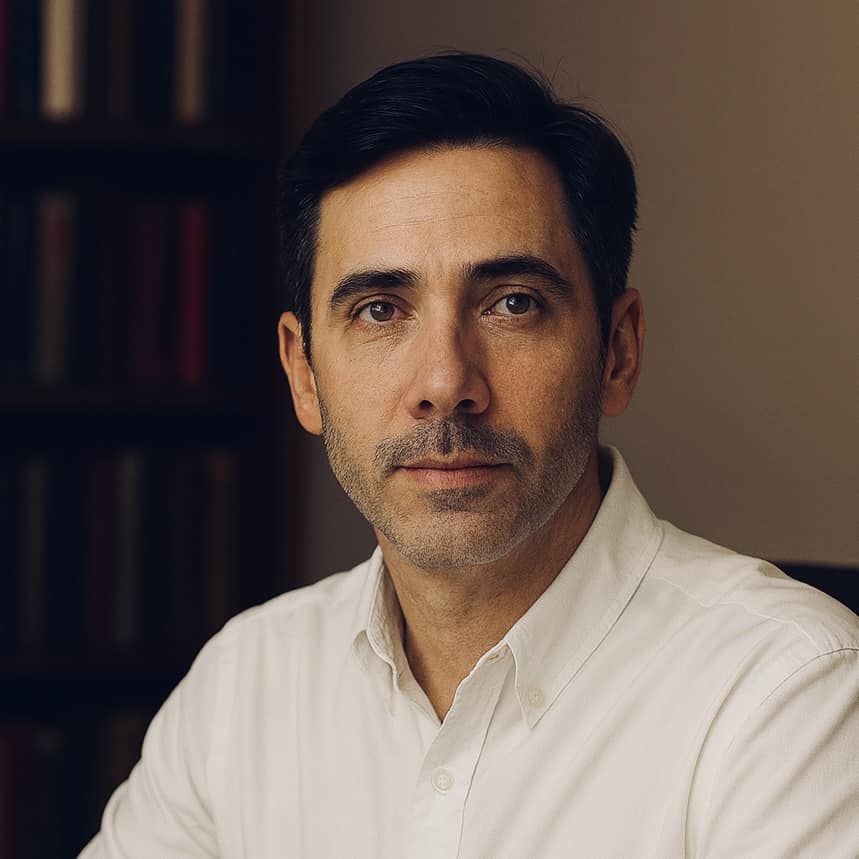Let’s dive into a tough but vital truth: most of the pain in our lives comes from those closest to us, not strangers. Whether you’re in New York, London, or Paris, you’ve likely felt the sting of hurt from someone you love. Your favorite European soccer team losing a final might bum you out for a week, but a betrayal from a close friend or partner can leave you reeling for a year, or even a decade. In this piece, I’ll share deep, relatable insights to help you live more independently, set clear boundaries, and avoid the trap of pleasing everyone. Join Cloverlogy as we explore how to break free from emotional pain and live stronger, happier lives.
The Truth About Pain: Loved Ones Hurt You More Than Strangers
Have you ever noticed that the deepest wounds often come from those nearest to you? A woman in Chicago betrayed by her boyfriend might spiral into despair, even contemplating giving up. A guy in Berlin turned down for a loan by his best friend might stew in anger for months. These hurts don’t come from random passersby, they come from the people you’ve poured your heart into. You feel like you’ve sacrificed so much, only to be met with coldness or betrayal. Why does this happen?
The issue lies in what I call emotional overspill syndrome, or, simply put, expecting too much in return for your affection. You love someone, help them, care for them, but when they don’t reciprocate as you hoped, you crumble. You might call them ungrateful or immoral, maybe even blame yourself for not being enough. But pause and ask: Did they ever ask you to give so much? Or did you give freely, expecting them to match your effort? If you’re living in the US or Europe, where individualism emphasizes self-reliance, placing blind faith in others’ emotions can set you up for heartbreak.
Think of a child in a family. If they behave, their parents buy them toys or new clothes. If they listen to their grandparents, they get candy or a trip to the park. But as adults, the world outside doesn’t work like a family. Society whether in New York or London is full of deception, coldness, and self-interest. If you expect that giving love guarantees love in return, you’re setting yourself up for pain. When you don’t get what you hoped for, you might vent, feel sad, or tell the world about the “heartless” person who hurt you. But in reality, it’s your expectations that have crumbled. So, how do we break this cycle?
Lesson One: Don’t Expect Too Much from Others’ Emotions
To avoid hurt, the first step is to lower your expectations of others’ feelings. When you love someone, be it a friend, partner, or family member ask yourself: Do they truly value you? Don’t rush to give everything just because you care for them, only to be disappointed when they don’t reciprocate. As the Buddha once said: Do good without expecting reward, for if you expect something in return, it’s no longer true kindness. Do good because it brings you peace or contributes to a better world, not because you’re waiting for gratitude. If you don’t care about society or inner peace, you don’t have to do good at all. It’s that simple.
Lowering expectations brings relief. For example, if you’re in Paris and lend money to a friend, treat it like it’s gone. If they pay you back, it’s a pleasant surprise. If not, you’re not stressed. In the US or Europe, where financial and social pressures are high, expecting too much from others only makes you vulnerable. Shine a light before you step – meaning, see someone’s true nature before giving your heart. Help others, but don’t count on them to repay you.
Lesson Two: Understand the Role of Self-Interest in Relationships
Here’s a hard truth: Society whether in the US or Europe runs mostly on self-interest, not emotions. Your boss doesn’t value you because you’re likable; they value you because you get work done and add value to the company. Colleagues are friendly maybe because you’re generous, solve their problems, or just listen well. Even family isn’t always an exception. Parents might push you to marry early, not just for your happiness but because they want grandkids to bring them joy. They might want you to live nearby for their convenience. Even having kids often stems from parents’ desire for happiness, not just for the kids’ sake.
Consider this: When you have a child, do you ask their permission first? In truth, you have kids for your own joy. Some parents discourage divorce, not for their child’s happiness, but to avoid losing face with neighbors. In the US or Europe, where reputation and status matter, this is especially clear. So don’t be shocked when people even loved ones act in their own interest. Recognizing this helps you stop expecting them to be “moral” toward you. Instead, focus on doing good for yourself, because it brings you peace, not because you expect reciprocation.
Lesson Three: Emotional Independence – The Key to Protecting Yourself
To avoid pain, learn to be emotionally independent. In the fast-paced US or Europe, where it’s easy to rely on others to fill emotional gaps, this skill is a game-changer. It means building a rich inner life that doesn’t depend on anyone else. Find a favorite coffee shop in London, a go-to restaurant in New York, or a personal hobby like reading, painting, or jogging. When your partner is busy or your friends don’t respond, you can still go see a movie, sip coffee, or chat with other friends.
Picture your soul as a garden. Don’t leave it barren, waiting for someone else to plant flowers. Grow your own, hobbies, passions, friendships. If a lover leaves, you still have your garden to enjoy, not a void of loneliness. But if you rely entirely on someone else’s “garden,” their departure leaves you with nothing.
For instance, if you love a pet dog, you’re already preparing for the pain of its loss. With people, change is even harsher. A man who says he loves you but cheats? He doesn’t love you; he just doesn’t want to lose someone who sacrifices for him. In the US or Europe, where relationships can be complex, stay sharp. Don’t let love blind you. Love, but keep your heart at 80 degrees, warm enough to connect, but not so hot it burns you.
Lesson Four: Stop Trying to Be “Nice” to Everyone
A big mistake is trying to be “nice” in everyone’s eyes. In the US or Europe, politeness can make you feel obligated to please colleagues, friends, even strangers. But here’s the truth: If someone doesn’t see you as good, no matter how much you try – 100 times, even – they’ll focus on the one time you slip. Conversely, if they like you, a few mistakes won’t change that.
So what’s the solution? Don’t try to change how others see you. If someone doesn’t value you, step away. You’re not obligated to be nice to everyone, except perhaps immediate family. Don’t even label yourself as “nice.” If you always try to seem good, one failure can erase all your past efforts. Instead, be authentic. If you’re “bad” in someone’s eyes but do something kind unexpectedly, they’ll value it more. The best approach: Don’t give too much without reciprocation. If you’re kind once and they return it, you can be close friends. If they don’t, or worse, talk behind your back, cut them off, no matter who they are.
Lesson Five: Love and Marriage – Know the Truth to Avoid Pain
Love and marriage are where you’re most likely to get hurt. In the US or Europe, where personal freedom is celebrated, we often believe in “true love.” But be honest: Human nature craves novelty and tires of the familiar. Men may love deeply but also seek newness. Women often dream of exclusive love, but in reality, marriage sometimes clashes with human instincts. Marriage isn’t always about love; it’s a tool for societal stability, resource sharing, and growth.
When you’re dating, everything might feel like a dream. But after marriage, if you don’t keep growing, one of you may be “left behind.” Men and women are like a tree and a vine: If the tree grows but the vine doesn’t, other vines will cling to it. If the vine grows but the tree doesn’t, the vine will wrap around another tree. To avoid pain, both partners must evolve. If you’re a woman, become more captivating, stronger. If you’re a man, grow more successful, charismatic. When you’re at your best, it’s harder for someone to walk away.
Especially in extramarital affairs, don’t expect true love. A lover is often just a fleeting thrill, free of responsibility. If you find yourself in this situation, stay clear-headed: Use any resources they offer, but don’t invest your heart. Those who master relationships, like Queen Elizabeth I of England, don’t fall blindly in love; they wield emotions strategically. Elizabeth I didn’t let love sway her; she used marriage proposals from powerful men to strengthen England’s position. She chose independence, focusing on her power and country over emotional entanglements. That’s why she became one of Europe’s greatest monarchs. Women should learn to stand on their own: let others love, hurt, or pine as they will, you just live for yourself.

Live Independently, Set Boundaries, Live for You
Dear friend, the greatest pain in life often comes from those we love because we expect too much from them. To live happier in the US or Europe, here’s how:
- Lower expectations: Love and help others, but don’t expect reciprocation.
- See self-interest in relationships: Even family acts on personal gain.
- Be emotionally independent: Build a rich inner life so you don’t rely on anyone.
- Stop pleasing everyone: Set boundaries and be kind only to those who deserve it.
- Stay sharp in love: Know human nature to protect yourself from hurt.
Live with integrity for your own sake, not to bind others. Be your own vibrant garden, so no matter who comes or goes, you’re still thriving. Thanks for reading this far! What do you think about setting boundaries or letting go of expectations? Share your thoughts and keep following Cloverlogy for more life lessons that hit home!












